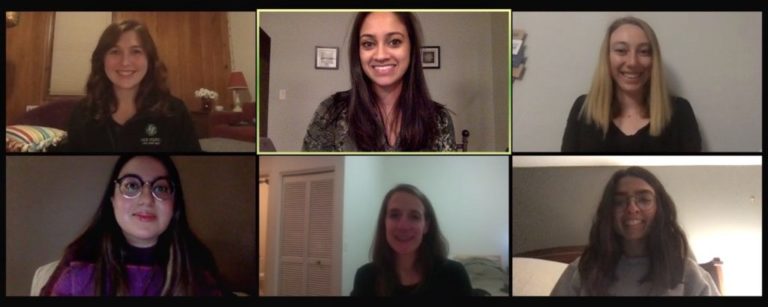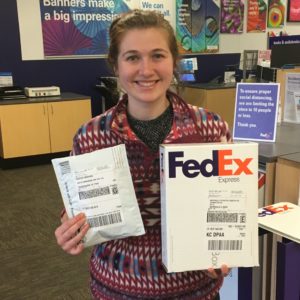
ESAL had the opportunity to talk with Melissa Baker, a third-year medical student at Georgetown University in Washington, D.C. She is a founding board member of Medical Supply Drive, a student-led organization that has mobilized to respond to the critical shortage of masks and protective equipment in hospitals across the U.S.
In mid-March, the country was just beginning to face the sobering reality of life under a pandemic. Already, emergency physicians in the greater D.C. area were anticipating a shortage of personal protective equipment (PPE) — the masks, face shields, gloves, gowns, and other essential barriers that protect against the highly infectious COVID-19 virus. They contacted students at Georgetown University Medical School for help. With clinical rotations and in-person classes canceled, a group of third-year medical students heeded the call to action.
Melissa Baker designed the website after seeing her fellow third-year classmates send messages in Slack and post on Instagram. Between March 17th and 18th, Baker plus five others — an all-female team — established Medical Supply Drive. It all coalesced in just two days.

Melissa Baker shipping [package 1] N95 masks to nurses to a hospital in Illinois where nurses did not have access to N95 masks, and [package 2] N95 masks to a physician in Texas who before MedSupplyDrive was unable to replace his N95, which he used every day to conserve resources.
“We’re mostly student-based, but we have so many other people, especially in New York. We have artists, high schoolers, teachers, people from the business/private sector, and graduate students from all over, not just in the healthcare profession. You can be anyone if you want to help. There’s definitely opportunity for you.”
Medical Supply Drive relies on volunteers to coordinate local pick-up and delivery of supplies, matching donations to hospitals in need. The process begins on their website, where visitors can select from three main options: I have supplies, I need supplies, or I want to volunteer.
Baker emphasized that “each community has had their own way to shape Medical Supply Drive.” As friends shared with friends, Medical Supply Drive was able to reach individual communities through avenues suited to the needs of that particular area. In California’s Placer County, for example, one volunteer made paper flyers to spread the message because many residents do not use social media. Elsewhere, someone made a Facebook group, knowing that platform would be the best way to reach people in their network.
With its large volunteer base, Medical Supply Drive has been able to partner with and provide support to other grassroots organizations that have emerged in recent weeks. These include Donate PPE, another movement with a large national presence, and Future MDs vs. COVID, a smaller group based out of Harvard Medical School. They have also been working with Masks for Docs, which uses motorcycles to deliver donated supplies to hard-hit hospitals in New York City.
As the pandemic continues into April and likely May, Medical Supply Drive has no intention of stopping. They plan to continue generating awareness around the shortage of medical-grade PPE and supporting their extensive network of regional coordinators.
Baker also hopes everybody will do their collective part, whether that’s sheltering-in-place to reduce the spread of the virus or supporting those who are working on the front lines. “Any little bit we can help in donating PPE, I hope will help them,” she said.
To healthcare professionals in particular, Baker wants them to know, “We see you. We’re standing with you, even though we can’t stand next to you.”
If you have personal protective equipment to donate or are interested in volunteering, visit MedicalSupplyDrive.com to sign-up. ESAL has also compiled a list of many other ways you can help your community respond to COVID-19.
Are you involved with an organization or effort that you think might be of interest to the ESAL community? Or have heard about an organization or initiative that you’d like to learn more about? Let us know here, and we may feature it in a future post.